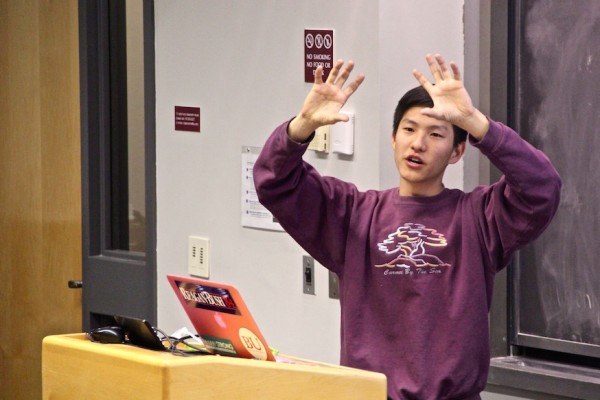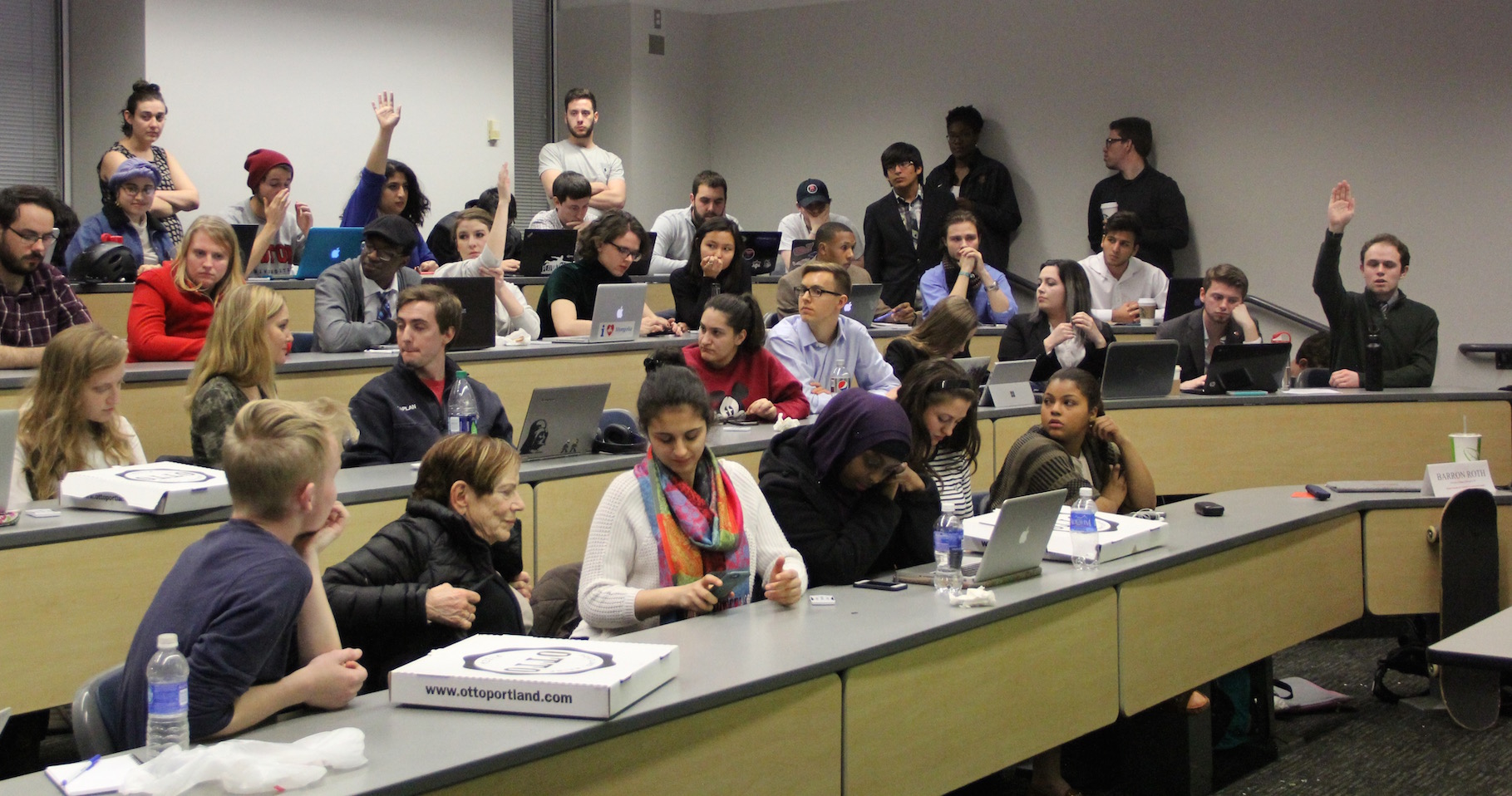At its last meeting, Student Government’s Constitutional Reform Committee (CRC) failed to receive a two-thirds majority on a proposed new constitution, leaving the organization in a state of disarray.
Following the impeachment of former Vice President of Finance Kimberly Barzola and former Vice President of Internal Affairs Marwa Sayed, student activist group Students Against Silence pushed aggressively to dissolve the senate. In response, student government created the CRC, made up of senators and members of the general student body, with the purpose of redrafting the constitution.
While the CRC discussed proposals for a new constitution, the senate continued to operate in its original capacity. As it stands, senate will not dissolve in the foreseeable future because the CRC failed to achieve a two-thirds majority on one of the three proposed constitutions.
The proposed constitution centered around a bicameral legislature where the Lower House would consist of the undergraduate student population as a whole (or, as the draft states, “all those in good judicial standing”) while the Upper House would be made up of elected representatives from colleges, RHAs, etc. and operate like the previous senate.
The three proposals, labeled A, B and C were, in essence, very similar. The only differences came in determining how the Lower House would be used:
Proposal A written by Students Against Silence and committee member Jake Brewer, would use the Lower House as a filtration system. Any bills or issues presented in a meeting would go through the Lower House first, with the exception of small dollar amounts (anything below $1,000) or one-time events.

Proposal B, led by College of Engineering Senator Nadia Asif, would allow issues to originate in either House and afford the option of pushing through one or the other rather than both. In this case, the Lower House would still maintain the power to overturn the measure.
Proposal C, led by Student Government President Andrew Cho, would mandate that all issues, regardless of dollar amount or timeframe, must first pass through the Lower House before moving forward to the Upper House.
In the first round vote, proposals B and C garnered the most support and proposal A was discarded. In the final vote however, neither was able to secure enough support to be passed, even with a motion to re-vote.
What Does This Mean?
Between the impeachments and faction-based arguments, culminating in the inability to secure a majority vote, BU students say they’re feeling underserved by their elected officials.
President Andrew Cho said the meeting was more destructive than helpful. “I did my best to bring together a compromise, we had a lot of hope going into it,” Cho said. “I thought people were gonna say things like ‘let’s go for this,’ or ‘let’s go for that,’ but it really was just about tearing up what we had.”
Cho said the gridlock and inability to come to a consensus was frustrating and demoralizing. “I think this has really dejected a ton of people about what student government can do.”
Lamina Egao (SAR’17) a student at the meeting, mirrored Cho’s discontent. “A lot of people put countless hours and many months of work into this,” Egao said. “For us to leave without anything really is really disappointing.”
Egao said she was outraged at the way student government conducted itself. “I understimated the degree to which certain members of this committee wish to obstruct for nothing to change,” Egao said. “I’m highily disappointed that nothing will change. I think people who function this way should be utterly ashamed of themsleves. It’s disgusting, and it’s not going to end. It’s frustrating.”
But some members of student government, like Hamilton Millwee, say no consensus may just be the best way forward.
Millwee, the Student Government Director of Academic Affairs and member of the CRC, said that due to the recent “distractions,” there hasn’t been a lot coming out of student government that directly affects the students.
But, indecision aside, he has high hopes for the future. Millwee said “the CRC is not indicative of a non-functional student government but it’s actually illustrative of a group of people involved that have different opinions.”
As of now, Millwee said there are three major problems keeping the system from working effectively:
1) Students don’t know how their government works. Unlike a federal or state governing body which enacts rules and regulations by way of bills and amendments, BU’s system functions more like union, with each official representing a segment of student interests. (Writer’s note: it took conversations with six different people including members of SAS, former senators and current members of the CRC to try and clear up how our government actually operates.)
2) Without understanding how the system works, students feel like they can’t get anything done.
3) Voting Equity. Representation in student government has traditionally been based on factors such as college, student activities, Greek life and residence. The issue here, is that a student in CAS who has pledged a fraternity, lives in Warren Towers and is a member of several student groups could potentially lay claim to 13 different representatives while a student living off campus, studying in SHA who isn’t involved in one club or activity may only have one representative.
Keeping these issues in mind, Millwee said student government has a substantial amount of work left in front of them. He said, while he agrees with the intentions of groups like SAS that are pushing for direct democracy, the reality of the situation is that the student body is just too big, too diverse and too busy to vote at every opportunity. He believes electing students to represent sections of the BU population is a good middle ground; he just wants that representation to be equal.
“My take has always been that a successful government has to balance between efficiency and the ability to have everyones’ voices heard,” Millwee said. “On the one side, you have ultimate efficiency which is dictatorship. On the other is anarchy. Somewhere in the middle is the right answer. You have to–as a student body, government or union–be able to get things accomplished in a reasonable period of time in an efficient way and in a way where the actions you take will have positive, tangible benefits to the most students.”
All documents pertaining to the CRC and the proposed constitutional changes can be found here. If you’re experiencing issues accessing the link, we recommend Google Chrome.




